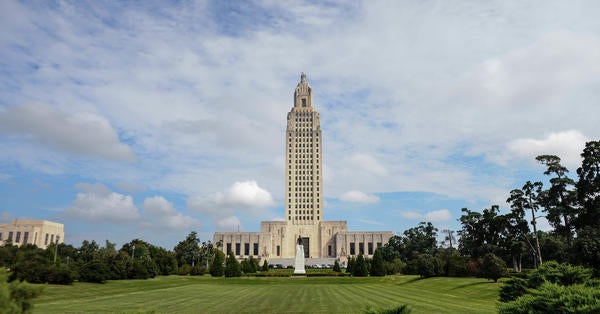Houses passes constitutional amendment for federal alternative energy revenue
Published 10:07 am Thursday, April 28, 2022

- (Special to the American Press)
By Victor Skinner | The Center Square
A constitutional amendment to spell out how Louisiana spends future federal alternative energy revenues from the Outer Continental Shelf was approved by the House.
Members voted 94-3 to approve House Bill 636, sponsored by Rep. Joseph Orgeron, R-Larose, to amend the state constitution to direct federal revenues for energy production from wind, solar, tidal, wave, geothermal “and other alternative or renewable energy production or sources.”
HB “636 is the constitutional amendment bill to dedicate any future offshore alternative energy revenues from the Outer Continental Shelf to the Coastal Protection and Restoration Fund,” Orgeron said on Tuesday. “And this constitutional amendment will mimic the same dedication that’s already in place for any Outer Continental Shelf oil and gas revenue the state receives, such as from the (Gulf of Mexico Energy Security Act) of 2006.”
The bill passed the House without questions or discussion.
As a constitutional amendment, the legislation must gain approval from two-thirds of lawmakers in both chambers, as well as a majority of voters.
The bill includes a yes or no ballot question that will be presented to voters in November, if approved:
“Do you support an amendment to allow federal revenues received by the state generated from Outer Continental Shelf alternative or renewable energy production to be deposited into the Coastal Protection and Restoration Fund?”
The Coastal Protection and Restoration Fund is a constitutionally protected trust fund dedicated to projects and programs designed to preserve and restore Louisiana’s coast. The state constitution requires spending from the fund to be consistent with the Louisiana Coastal Master Plan.
Louisiana statute states “such federal revenues shall be used only for the purposes of integrated coastal protection, including but not limited to coastal wetlands conservation, coastal restoration, hurricane protection, or for infrastructure directly impacted by coastal wetlands losses.”
The money spent on infrastructure is limited to no more than 10% of federal revenues.
The fund is run by the Coastal Protection and Restoration Authority.
HB 636 was approved by the House Committee on Civil Law and Procedure on April 18, when Rep. Danny McCormick, R-Oil City, questioned the need for the legislation, noting that it remains unknown whether alternative energy sources will bring revenues in to the state.
Orgeron said the bill would set up a framework to ensure any future revenues from alternative energy from the Outer Continental Shelf is directed into the Coastal Protection and Restoration Fund, which could be important to keep the fund alive amid a shift away from oil and gas.
Russell Caffery, director of intergovernmental affairs for the Governor’s Office of Coastal Activities, told committee members Congress is currently reviewing legislation to set up a federal revenue sharing structure for off-shore alternative energy similar to the Gulf of Mexico Energy Security Act.
Caffery also noted that Louisiana lawmakers approved the constitutional amendment to direct revenues the Gulf of Mexico Energy Security Act the year before it was approved by Congress.





